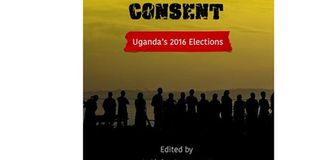Book on 2016 polls seized

In a letter to the Centre for Basic Research (CBR) circulated on social media by Dr Kabumba Busingye, a law lecturer at Makerere University, government has given the authorities at CBR a month to claim for the copies of the book titled “‘Controlling Consent” under section 214 of the East African Community Customs Management Act.
What you need to know:
- This is not the first time Ugandan government is seizing books deemed to be critical of the establishment.
- Controlling Consent is a multi and cross-disciplinary anthology on Uganda’s 2016 elections.
Kampala. Government has seized more than 600 copies of a book on the just concluded elections citing “false declaration” by the owners.
In a letter to the Centre for Basic Research (CBR) circulated on social media by Dr Kabumba Busingye, a law lecturer at Makerere University, government has given the authorities at CBR a month to claim for the copies of the book titled "Controlling Consent: Uganda's 2016 Elections" under section 214 of the East African Community Customs Management Act.
“Your consignment of 668 books has been seized and is liable to forfeiture in accordance with the provisions of the East African Community Customs Management Act,” the letter reads in part.
“The books arrived and they are saying we made false declaration. We have not been given details of what false declaration entails but we are going to find out,” Dr Simba Ssali Kayunga, the CBR Executive Director said in a telephone interview last evening.
This is not the first time Ugandan government is seizing books deemed to be critical of the establishment.
In 2010 government seized copies of books titled "The Correct Line? Uganda under Museveni" authored by Dr Olive Kobusingye, a sister to opposition leader Dr Kizza Besigye at Entebbe Airport. Government cited security reasons.
The book with different contributors is edited by Oloka Onyango, a Professor of Law at Makerere University and Josephine Ahikire an Associate Professor and Dean, School of Women and Gender Studies, Makerere University. Both are Senior Research Fellows at the Centre for Basic Research.
About the book
Controlling Consent is a multi and cross-disciplinary anthology on Uganda’s 2016 elections. The book brought together by a group of Ugandan researchers to provide a grounded analysis of the various dimensions of the elections and to reflect on the future governance and development implications of the franchise. Such an examination is especially important given that 2016 marked only the 3rd election under a multi-party system of government since the National Resistance Movement (NRM) under President Yoweri Museveni assumed power in 1986. Thus, Controlling Consent makes a critical contribution to the knowledge and understanding of Uganda’s governance and electoral processes and provides a meaningful and extensive engagement with the country’s evolving framework of electoral democracy, both as test of and reflector upon the wider process of political development in the country.




